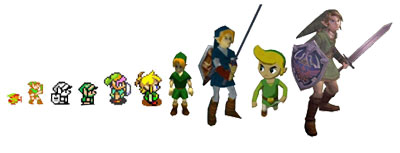Elite's documentary on YouTube (part 1 and part 2) is an inspirational look into the history of the video game industry and the history of one game that changed the world. Well, at-least the world of video games. Elite was a spark that set the world of video games on fire and sent it on a mind blowing accelerated evolutionary trip.

If you ever played Pac-Man you were pretty much aware of what to expect from all other video games in the early eighties.
Every video game had the basic set of expectations. David Braben, the co-creator of Elite explains what these expectations were and expresses his frustrations with these rules:
There was an expectation that for example, a game would take 10 minutes to play through. There was an expectation that it would have three lives. There was an expectation that it would have a score. And all of these things had almost become written in stone; which is utterly ridiculous.
The founders of Elite challenged every expectation and dared to question the status quo. They decided to question the premise on which big guys like Atari worked. David explains this in his interview:
I was very excited about 3d graphics even before I had a computer. Because I thought it can't be that hard. You know, as an arrogant teenager might do. But the received wisdom of that time was that you couldn't do it on a home computer.
We were possibly the first people to do what would now be called a big game. A game where the player has to put a lot of commitment into playing it as well as we to writing it.
But changing the world and making a dent in any universe isn't easy. It is a constant struggle against rules and constraints.
A measly 18k of usable memory on the BBC Micro meant that the programming duo would have to make custom changes to earn an additional 4k of usable memory to squeeze entire multi dimensional virtual universes into it.
Having limited usable memory meant that they would have to revert to innovative techniques like Fibonacci Formula to draw the universes and the movement of objects in these universes instead of storing these pieces in memory.
Lack of tools meant they the programming duo would have to draw the objects on graph paper and type in the numbers.
No error checking meant that they would have to debug the code line-by-line.
EMI's rejection letter to back them up based on the grounds that they were breaking every conventional rule meant that they would have to move to Acorn.
Running out of time meant squeezing in last minute changes like introducing a radar system two weeks before the release date.
For Acorn; the company that backed up the programming duo; backing a game that was changing the world of gaming meant that they would have to change their production; marketing; packaging and even their launch techniques.
The story has a happy ending with 150,000 copies of elite sold in UK itself; an incredible one copy for every BBC Micro that existed in the UK. Elite was the First Non-US game to not just get into the billboard charts but get to number one on it. Elite's story is a textbook example of a success story with lessons ranging from programming, marketing, venture funding, vision, leadership, dedication and success.
Here are the links to both parts of the documentary:
The videos are a must watch for anyone who is the process of building or marketing anything innovative. Elite was a game that inspired thousands of programmers to join the gaming industry and placed Britain on the map of game producing nations. It was the game that changed every rule of how games were built and what games were supposed to do. It changed the basics of how games were marketed and released. It might even be appropriate to say that it was a game that changed the world of gaming. To say the least Elite was an incredible game with many incredible lessons that will continue to inspire programmers for ages to come.
Comments are closed.